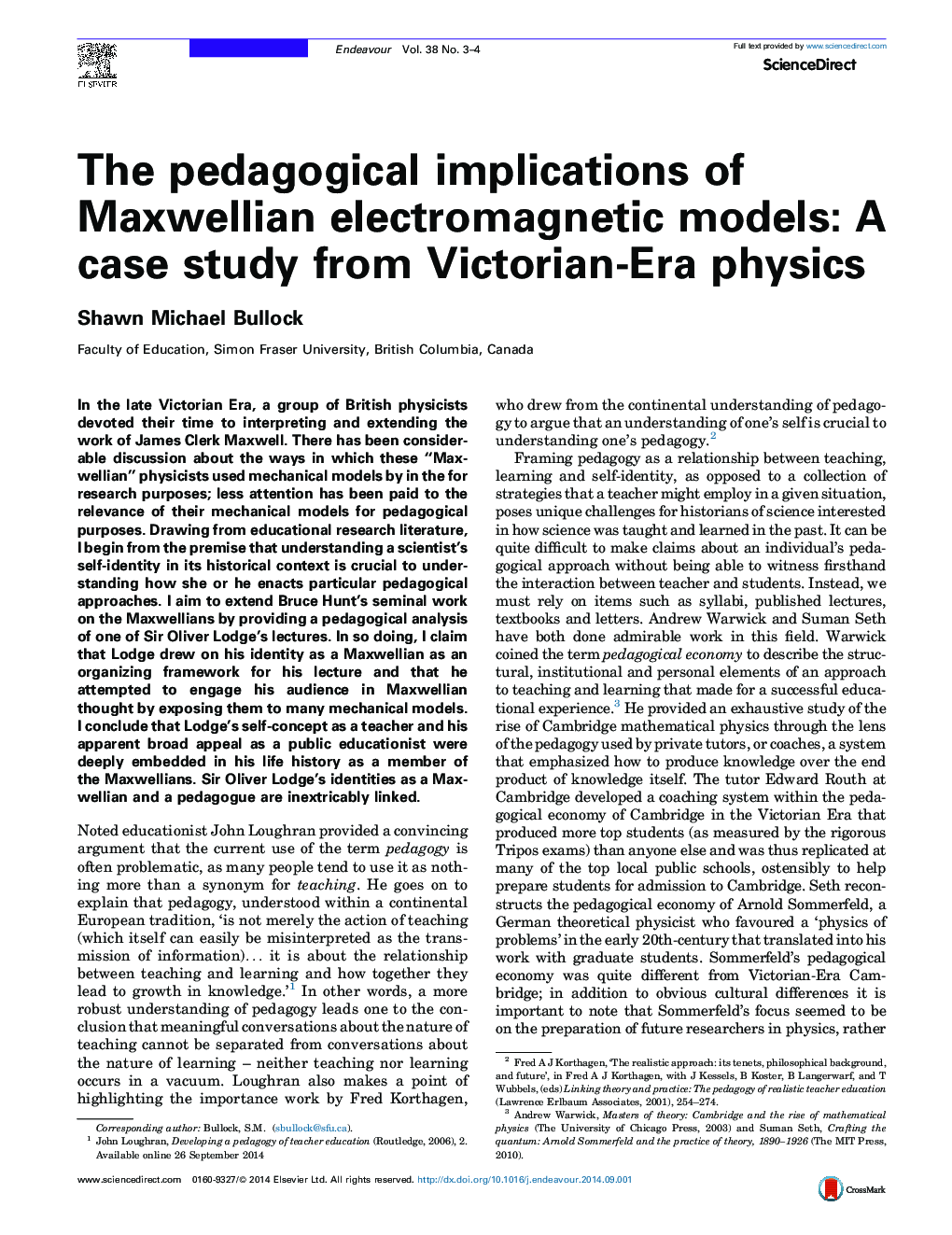| Article ID | Journal | Published Year | Pages | File Type |
|---|---|---|---|---|
| 1157607 | Endeavour | 2014 | 9 Pages |
In the late Victorian Era, a group of British physicists devoted their time to interpreting and extending the work of James Clerk Maxwell. There has been considerable discussion about the ways in which these “Maxwellian” physicists used mechanical models by in the for research purposes; less attention has been paid to the relevance of their mechanical models for pedagogical purposes. Drawing from educational research literature, I begin from the premise that understanding a scientist's self-identity in its historical context is crucial to understanding how she or he enacts particular pedagogical approaches. I aim to extend Bruce Hunt's seminal work on the Maxwellians by providing a pedagogical analysis of one of Sir Oliver Lodge's lectures. In so doing, I claim that Lodge drew on his identity as a Maxwellian as an organizing framework for his lecture and that he attempted to engage his audience in Maxwellian thought by exposing them to many mechanical models. I conclude that Lodge's self-concept as a teacher and his apparent broad appeal as a public educationist were deeply embedded in his life history as a member of the Maxwellians. Sir Oliver Lodge's identities as a Maxwellian and a pedagogue are inextricably linked.
